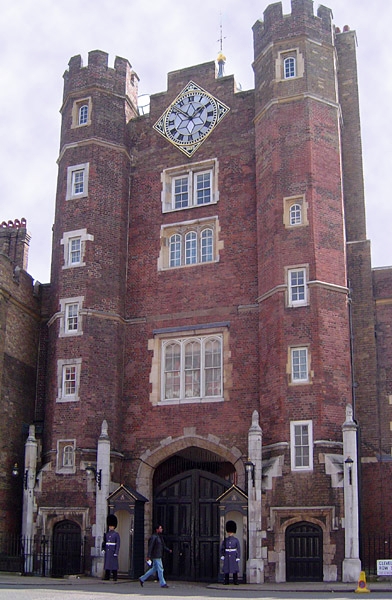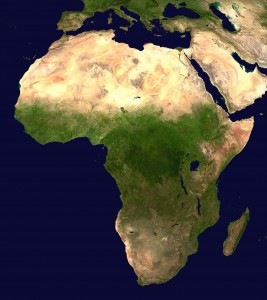Since its establishment in 1956, The Duke of Edinburgh’s Award has proudly served the UK and other countries throughout the world as a means of encouragement. A beacon of hope for young people everywhere, the DofE continues to garner the support of worldwide advocates such as Tunde Folawiyo and millions of others.
![By Leedsdoggod (Own work) [CC-BY-3.0 (http://creativecommons.org/licenses/by/3.0)], via Wikimedia Commons Tunde Folawiyo](http://upload.wikimedia.org/wikipedia/commons/d/d0/DofE-group.jpg) While the DofE is today one of the world’s foremost organisations for youth development, its beginnings are less recognised. Founded by a small team of esteemed professionals, the DofE was conceived as a way of motivating and inspiring boys aged 15 to 18 to strive towards a strong sense of self during the often difficult years between adolescence and adulthood.
While the DofE is today one of the world’s foremost organisations for youth development, its beginnings are less recognised. Founded by a small team of esteemed professionals, the DofE was conceived as a way of motivating and inspiring boys aged 15 to 18 to strive towards a strong sense of self during the often difficult years between adolescence and adulthood.
But although the DofE began with a focus on the betterment of young boys, it went on to accept both genders, with the girls’ scheme founded in 1958. In 1957 the age limit was raised to 19, gradually increasing before ultimately settling at 25. The changes paved the way for a new group of young adults striving to make a difference in their communities.
Over the years the DofE has grown exponentially into the internationally recognised programme it is today, reaching over 300,000 youths in over 120 countries throughout the world. In keeping true to its core values, the DofE continues to vigorously promote the areas of volunteering, unique skills, physical fitness and expeditions to encourage today’s young people to strive for a brighter tomorrow.
DofE participants must complete a range of training sessions and comprehensive assessments to demonstrate a great understanding of each section. With the exceptional guidance of their mentors, participants gain the information and leadership skills necessary to effectively accomplish the tasks at hand. DofE participants need to demonstrate their integrity in all that they do, from undertaking exciting activities to participating in charity work aimed at assisting their surrounding communities.
There are three DofE levels, with many participants judging the Gold level to be the most exciting. For this level participants take part in a Residential Project, embarking on an adventurous journey that sees them encountering new people, experiences and an unfamiliar environment vastly different to their own. Through the Residential Project, participants accomplish unique goals in order to gain a worldly perspective that undoubtedly leads to greater empathy and understanding of other cultures.
With the ongoing encouragement of the programme’s supporters, including Tunde Folawiyo, the DofE will continue fostering the development of bright young minds throughout the world.

 A Munro is defined as a mountain in Scotland boasting a height of over 3,000 ft. These were named for Sir Hugh Munro, who compiled the first list of these hills – Munros Tables – during 1891. Today, the most widely-recognised of the Munros is Ben Nevis, the British Isles’ highest mountain. Climbing Scotland’s Munros is a thrilling experience not to be missed.
A Munro is defined as a mountain in Scotland boasting a height of over 3,000 ft. These were named for Sir Hugh Munro, who compiled the first list of these hills – Munros Tables – during 1891. Today, the most widely-recognised of the Munros is Ben Nevis, the British Isles’ highest mountain. Climbing Scotland’s Munros is a thrilling experience not to be missed. Partnered with the UK’s Dallaglio Foundation, the Duke of Edinburgh Award welcomes Bristol Rugby Club as the first to offer the prestigious DofE to its young players. At a presentation at London’s Saint James’s Palace, DofE CEO Peter Westgarth and Paula Robertson, the Head of Programmes for the for the Dallaglio Foundation, presented the DofE license to several representatives in attendance including Bright Sparks Programme Manager Craig Capel, Bristol Rugby and CEO Ben Breeze along with Bristol Rugby Community Foundation. Tunde Folawiyo and other supporters of the DofE may be pleased with the announcement and its impact on the growth of the programme.
Partnered with the UK’s Dallaglio Foundation, the Duke of Edinburgh Award welcomes Bristol Rugby Club as the first to offer the prestigious DofE to its young players. At a presentation at London’s Saint James’s Palace, DofE CEO Peter Westgarth and Paula Robertson, the Head of Programmes for the for the Dallaglio Foundation, presented the DofE license to several representatives in attendance including Bright Sparks Programme Manager Craig Capel, Bristol Rugby and CEO Ben Breeze along with Bristol Rugby Community Foundation. Tunde Folawiyo and other supporters of the DofE may be pleased with the announcement and its impact on the growth of the programme.
![By Kardapoltsevvd (Own work) [CC-BY-SA-3.0 (http://creativecommons.org/licenses/by-sa/3.0) or GFDL (http://www.gnu.org/copyleft/fdl.html)], via Wikimedia Commons Tunde Folawiyo](http://upload.wikimedia.org/wikipedia/commons/8/82/SVS_CCF.jpg)
![By laurent Gilet, de Bambou Habitat [GFDL (http://www.gnu.org/copyleft/fdl.html) or CC-BY-SA-3.0-2.5-2.0-1.0 (http://creativecommons.org/licenses/by-sa/3.0)], via Wikimedia Commons Tunde Folawiyo](http://upload.wikimedia.org/wikipedia/commons/b/bd/Construction_maison_bambou.jpg) The business has done wonders for the local community, providing several young people with jobs; currently, Emmanuel has 25 full-time employees, as well as dozens of temporary workers, who join the team during the harvest season. The plantation grows tick trees, which are chopped up and used for the construction of housing and electrical poles. In addition to running this enterprise, Emmanuel also works as a volunteer for the DofE in Ghana, serving as the Head of Programmes and Administration.
The business has done wonders for the local community, providing several young people with jobs; currently, Emmanuel has 25 full-time employees, as well as dozens of temporary workers, who join the team during the harvest season. The plantation grows tick trees, which are chopped up and used for the construction of housing and electrical poles. In addition to running this enterprise, Emmanuel also works as a volunteer for the DofE in Ghana, serving as the Head of Programmes and Administration.![By Rept0n1x (Own work) [CC-BY-SA-3.0 (http://creativecommons.org/licenses/by-sa/3.0)], via Wikimedia Commons Tunde Folawiyo](http://upload.wikimedia.org/wikipedia/commons/thumb/8/88/Scottish_Power_building%2C_North_Cheshire_Trading_Estate.jpg/512px-Scottish_Power_building%2C_North_Cheshire_Trading_Estate.jpg) The Duke of Edinburgh’s partnership with ScottishPower Foundation will benefit students in areas such as Liverpool, Knowsley and the Wirral, propelling them toward success in the areas of unique employability and social and personal development. The DofE has long been revered for providing the foundation for young people to explore the world around them, enabling invaluable personal development along the way. The investments contributed by ScottishPower Foundation will be used to expand on the DofE provision, bringing new aid to local schools, youth groups, and charities, driving them toward becoming DofE centres.
The Duke of Edinburgh’s partnership with ScottishPower Foundation will benefit students in areas such as Liverpool, Knowsley and the Wirral, propelling them toward success in the areas of unique employability and social and personal development. The DofE has long been revered for providing the foundation for young people to explore the world around them, enabling invaluable personal development along the way. The investments contributed by ScottishPower Foundation will be used to expand on the DofE provision, bringing new aid to local schools, youth groups, and charities, driving them toward becoming DofE centres.![By The DofE (Own work) [Public domain], via Wikimedia Commons Tunde Folawiyo](http://upload.wikimedia.org/wikipedia/commons/9/91/DofE-Logo-2008.gif) A main focus of The Duke of Edinburgh Award is promoting an appreciation for charity and community service and as part of the programme, participants will be required to display an understanding of the importance of aiding fellow man. The DofE welcomes students to evoke positive change by empowering communities in rural villages in Ghana, Africa.
A main focus of The Duke of Edinburgh Award is promoting an appreciation for charity and community service and as part of the programme, participants will be required to display an understanding of the importance of aiding fellow man. The DofE welcomes students to evoke positive change by empowering communities in rural villages in Ghana, Africa.![By Martin23230 (Own work) [CC-BY-SA-3.0 (http://creativecommons.org/licenses/by-sa/3.0) or GFDL (http://www.gnu.org/copyleft/fdl.html)], via Wikimedia Commons Tunde Folawiyo](http://upload.wikimedia.org/wikipedia/commons/thumb/8/86/Africa_%28orthographic_projection%29.svg/512px-Africa_%28orthographic_projection%29.svg.png) difficulties in their lives, and discover their talents and abilities. Here, we’ll be discussing the experiences of two youths from Kenya and South Africa, whose involvement in the D of E helped them to flourish, in spite of the challenging circumstances in which they grew up.
difficulties in their lives, and discover their talents and abilities. Here, we’ll be discussing the experiences of two youths from Kenya and South Africa, whose involvement in the D of E helped them to flourish, in spite of the challenging circumstances in which they grew up.![<a title="By Andrew Oakley (NASA World Wind) [Public domain], via Wikimedia Commons" href="http://commons.wikimedia.org/wiki/File%3AAfrica-asia-america-to-scale.jpg"><img width="512" alt="Africa-asia-america-to-scale" src="//upload.wikimedia.org/wikipedia/commons/thumb/a/a3/Africa-asia-america-to-scale.jpg/512px-Africa-asia-america-to-scale.jpg"/></a> Tunde Folawiyo](http://upload.wikimedia.org/wikipedia/commons/thumb/a/a3/Africa-asia-america-to-scale.jpg/512px-Africa-asia-america-to-scale.jpg)